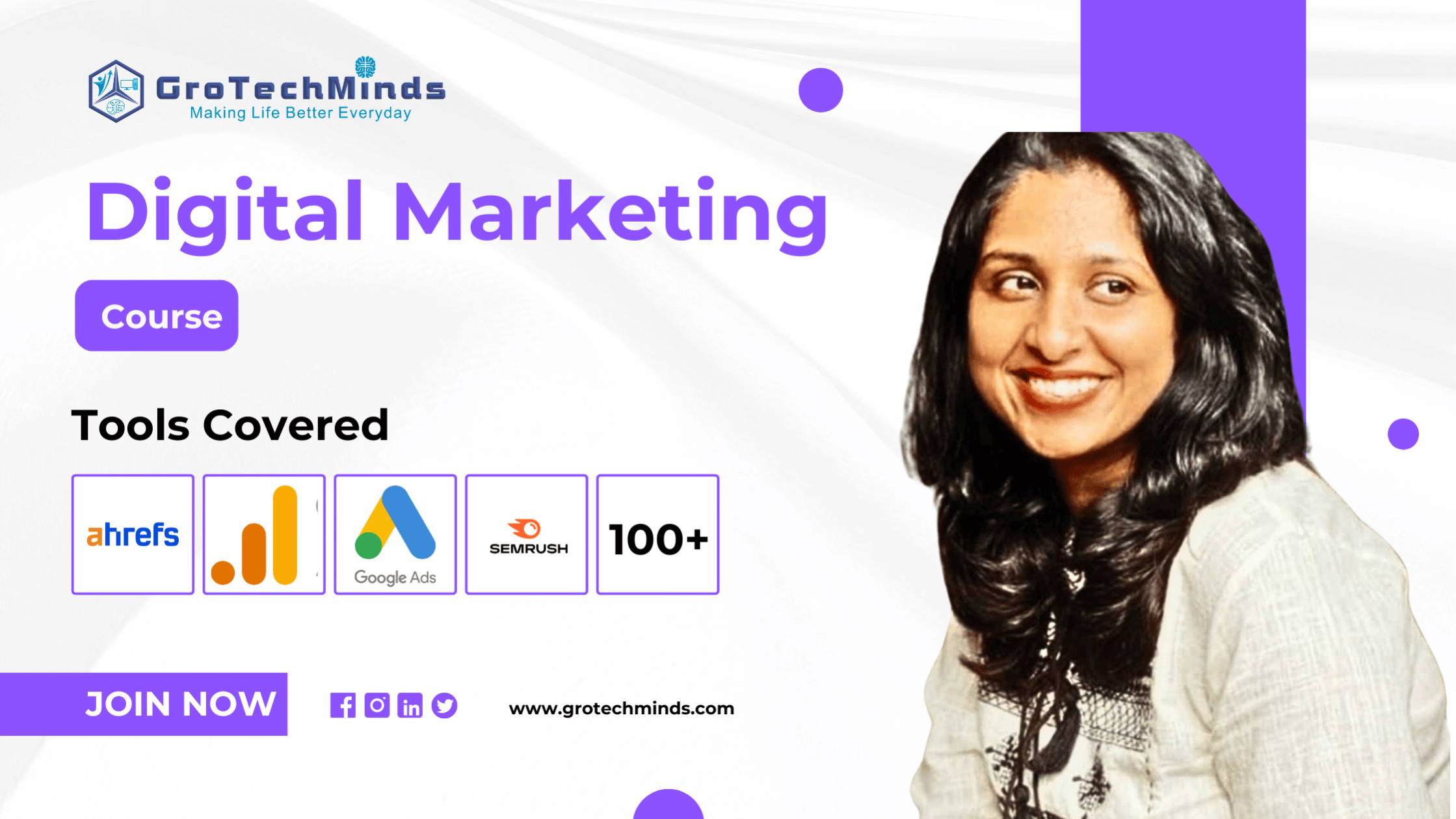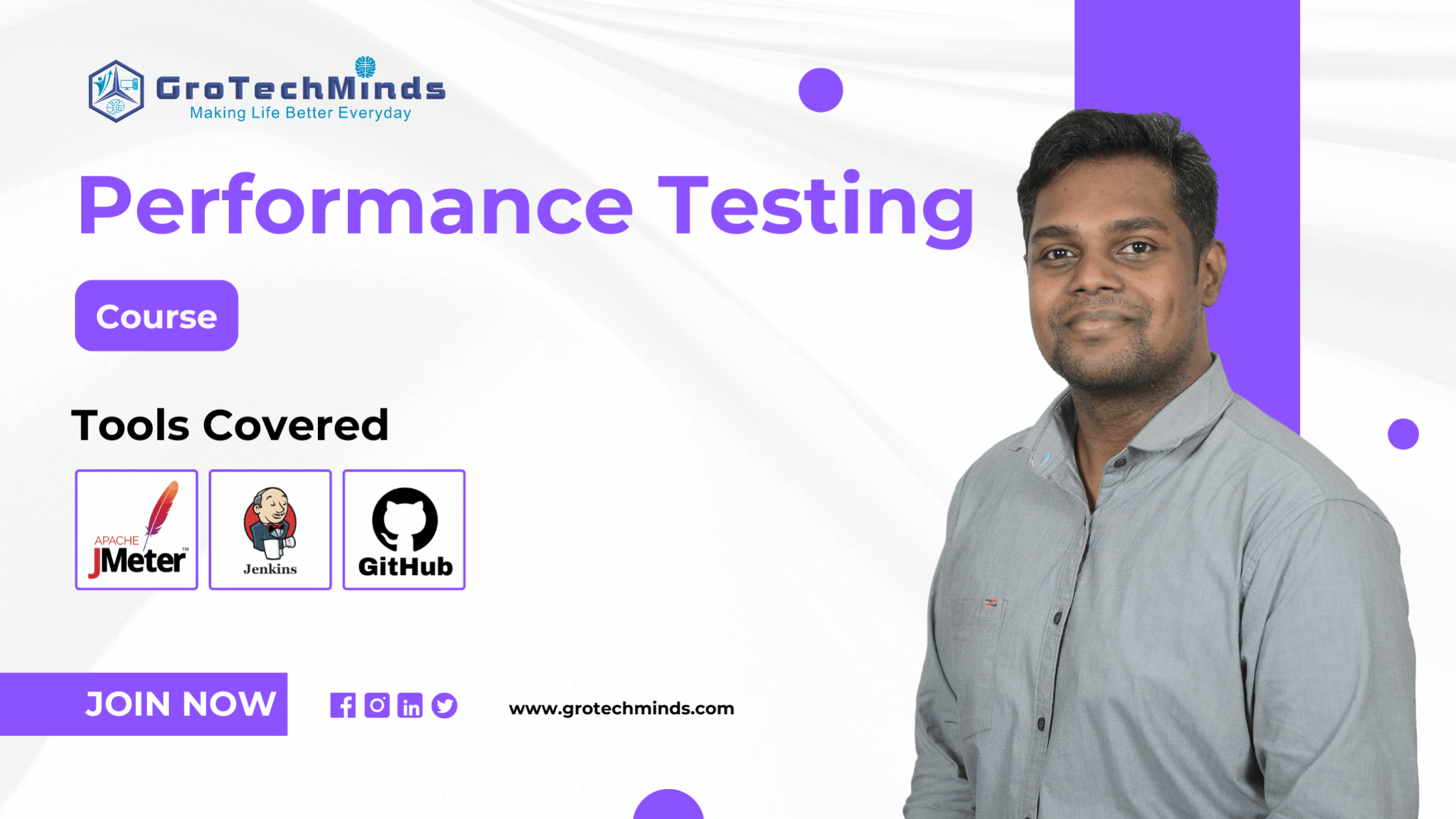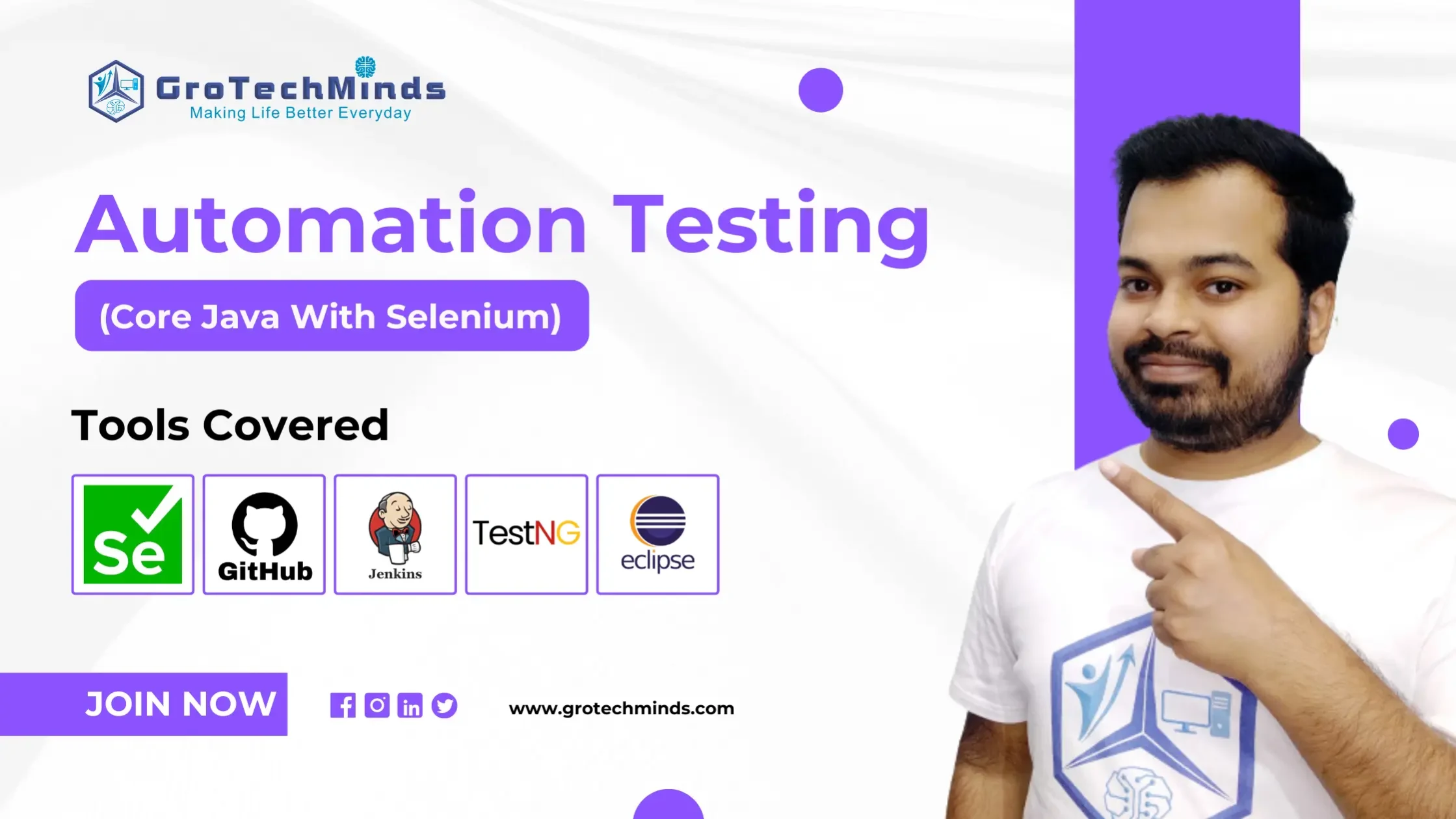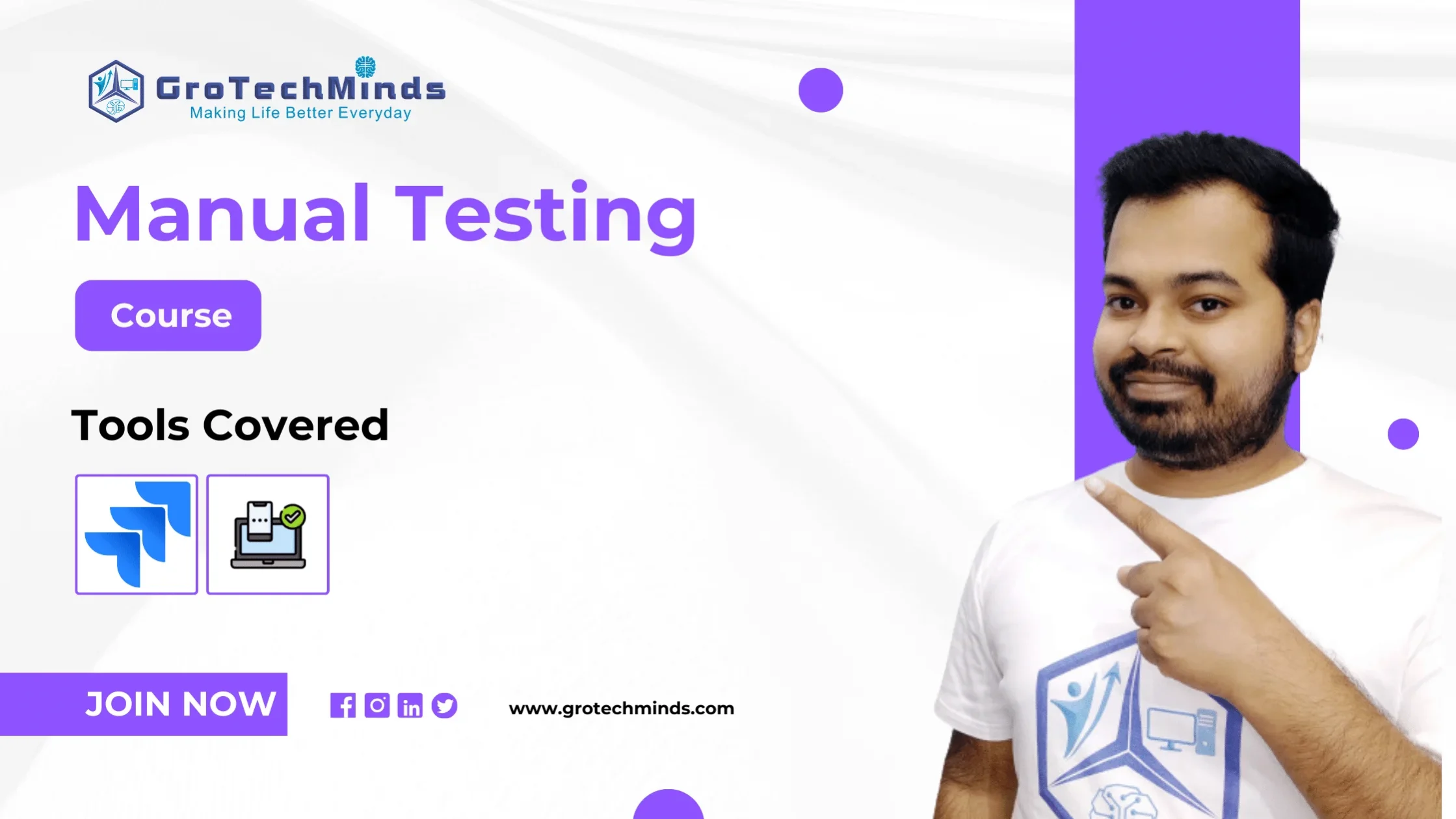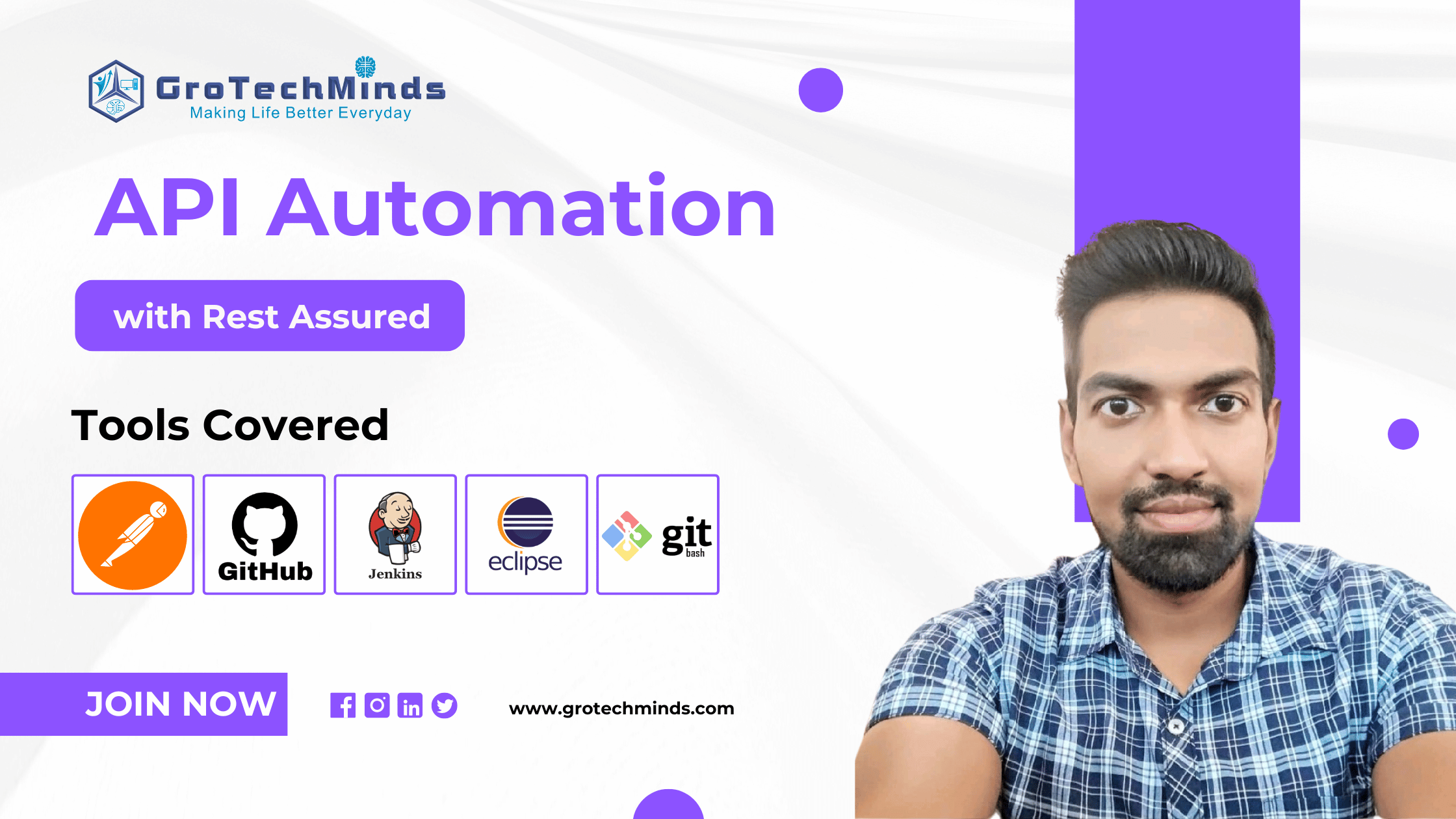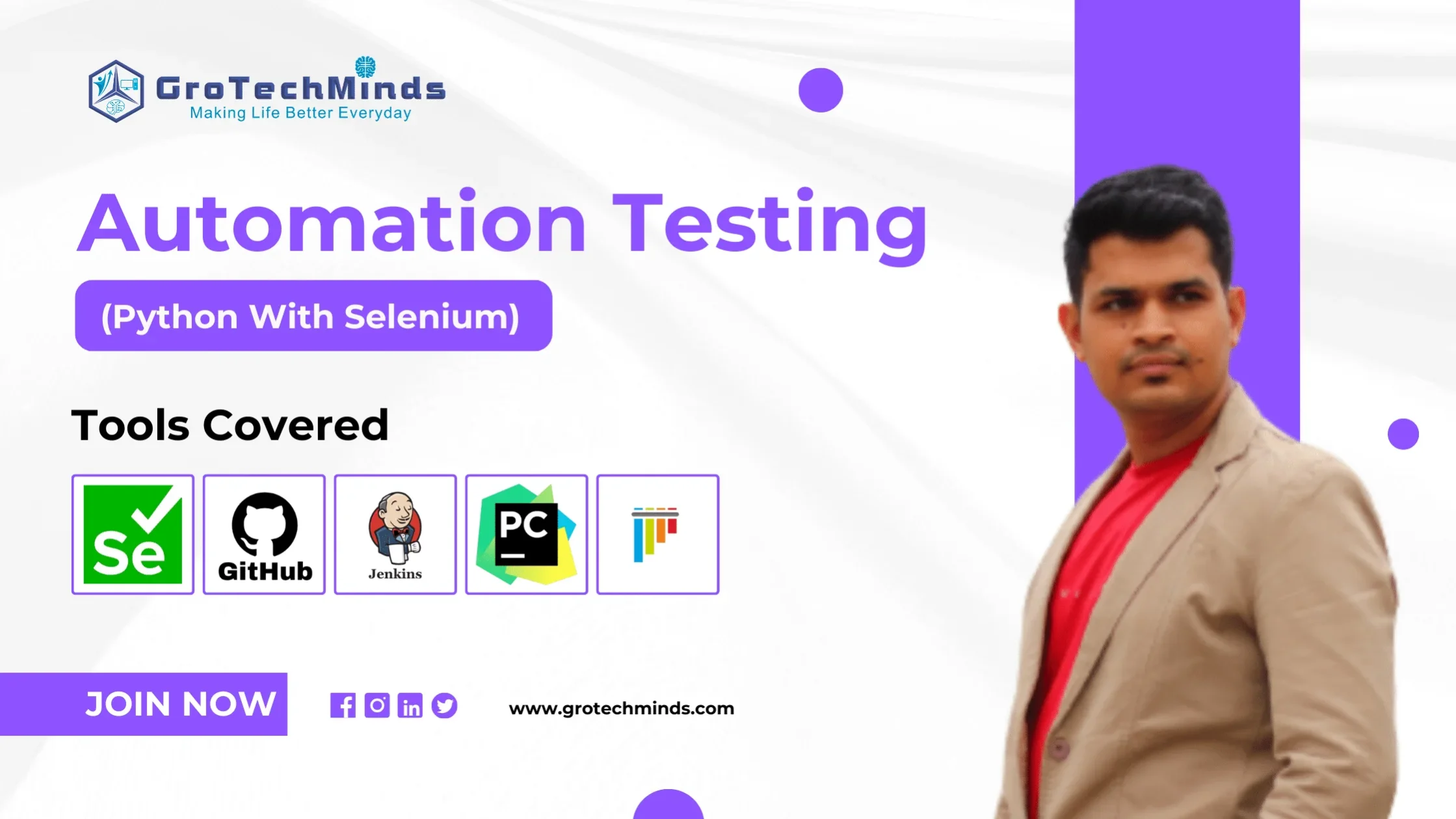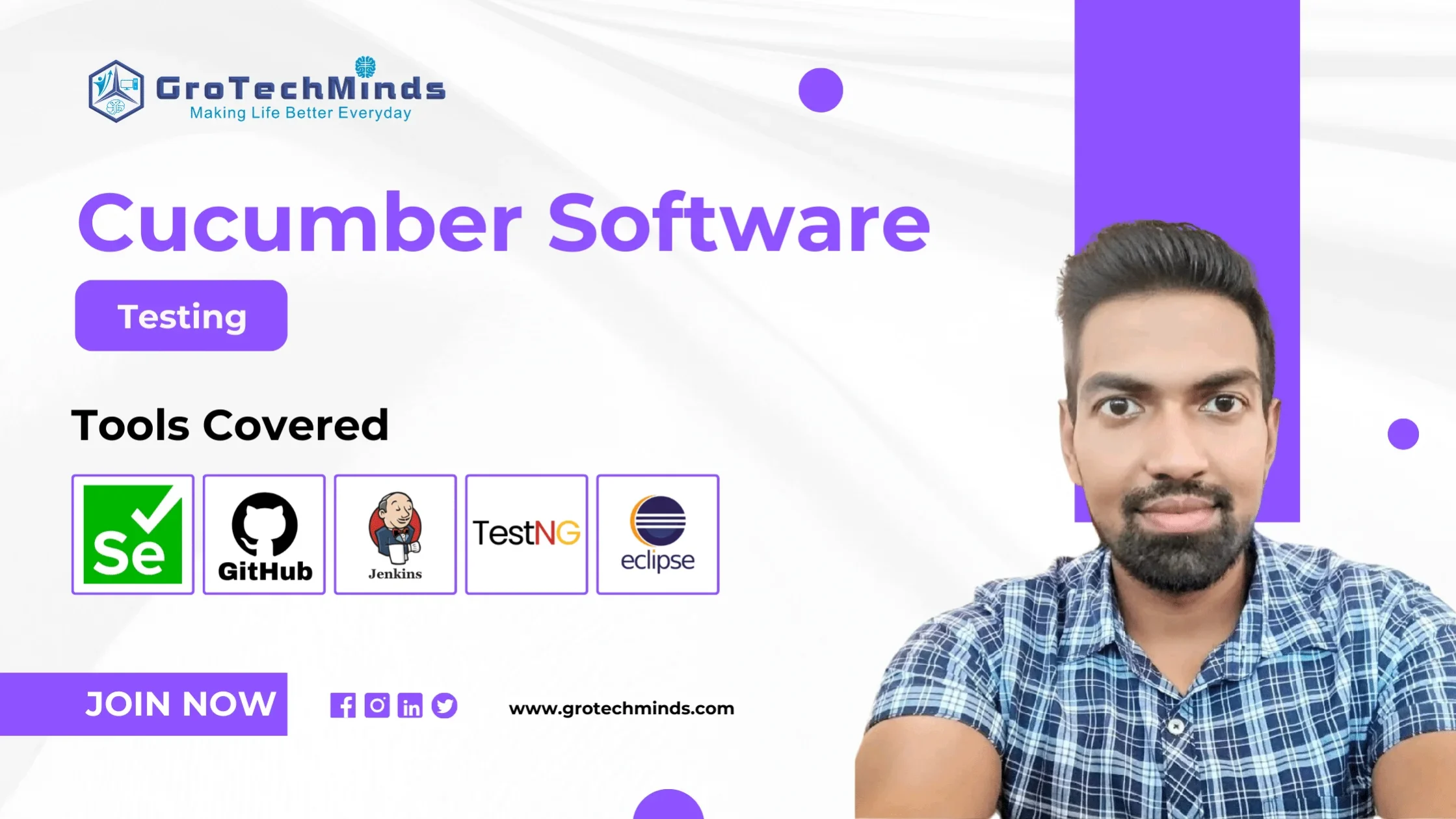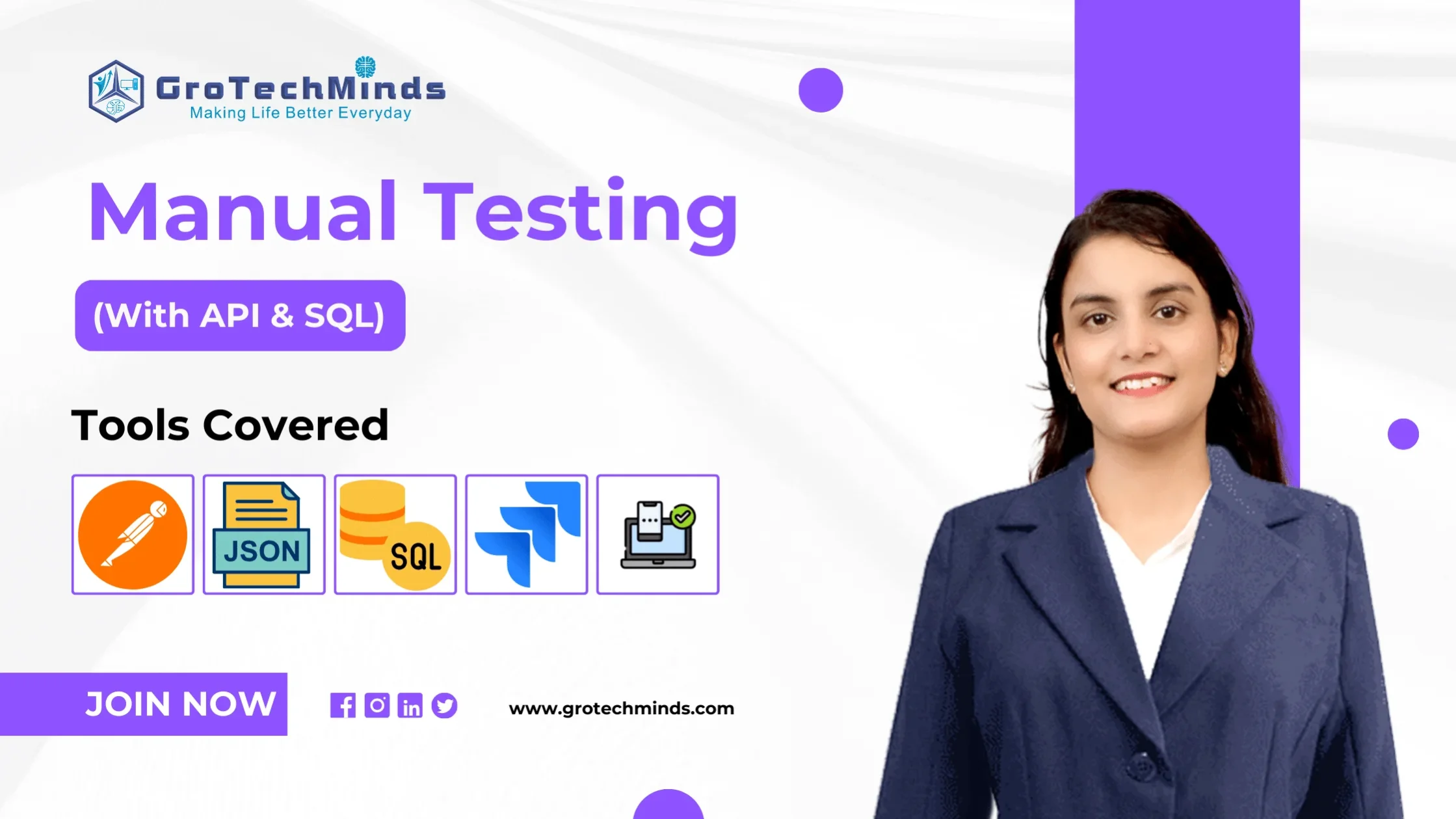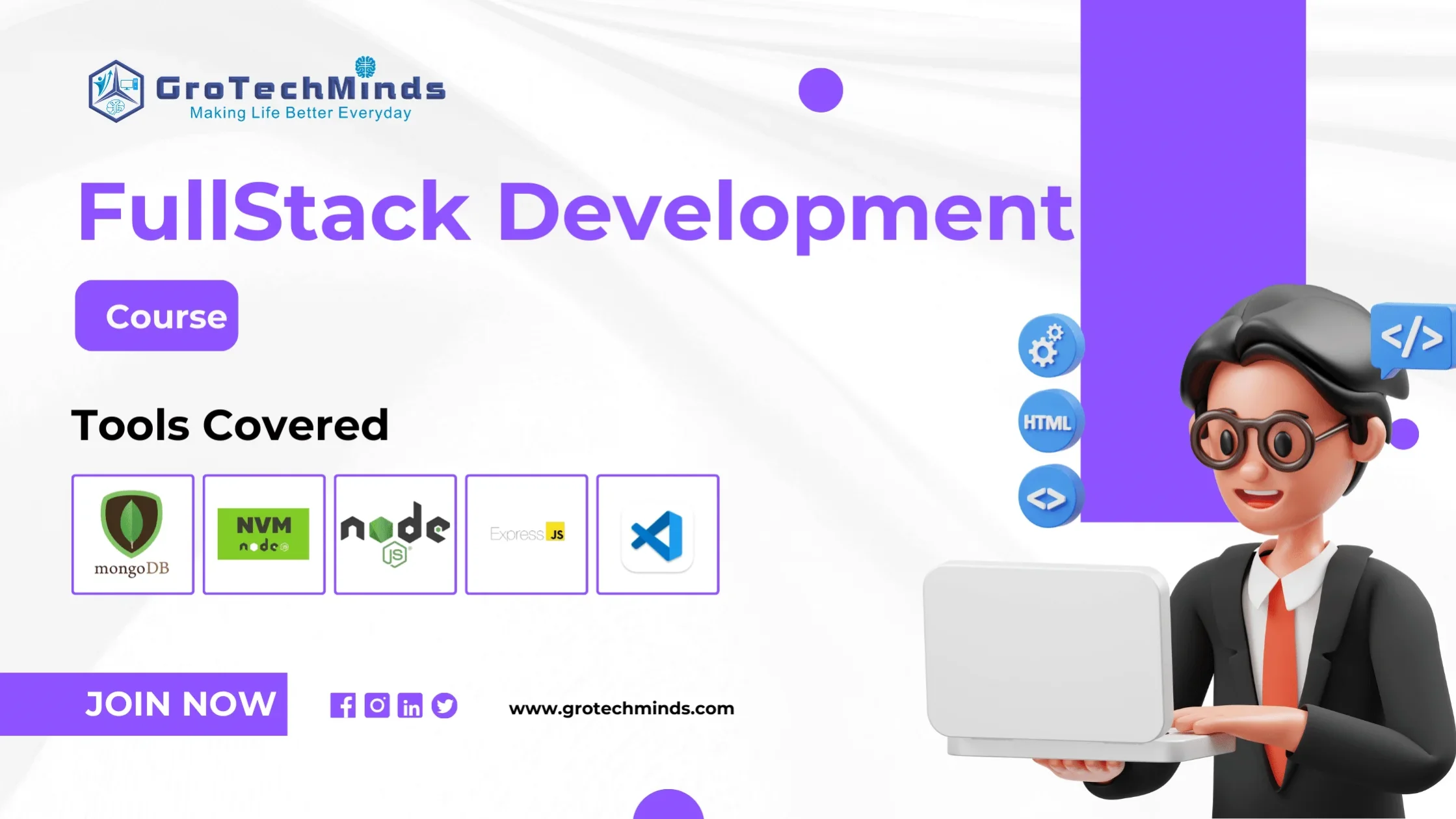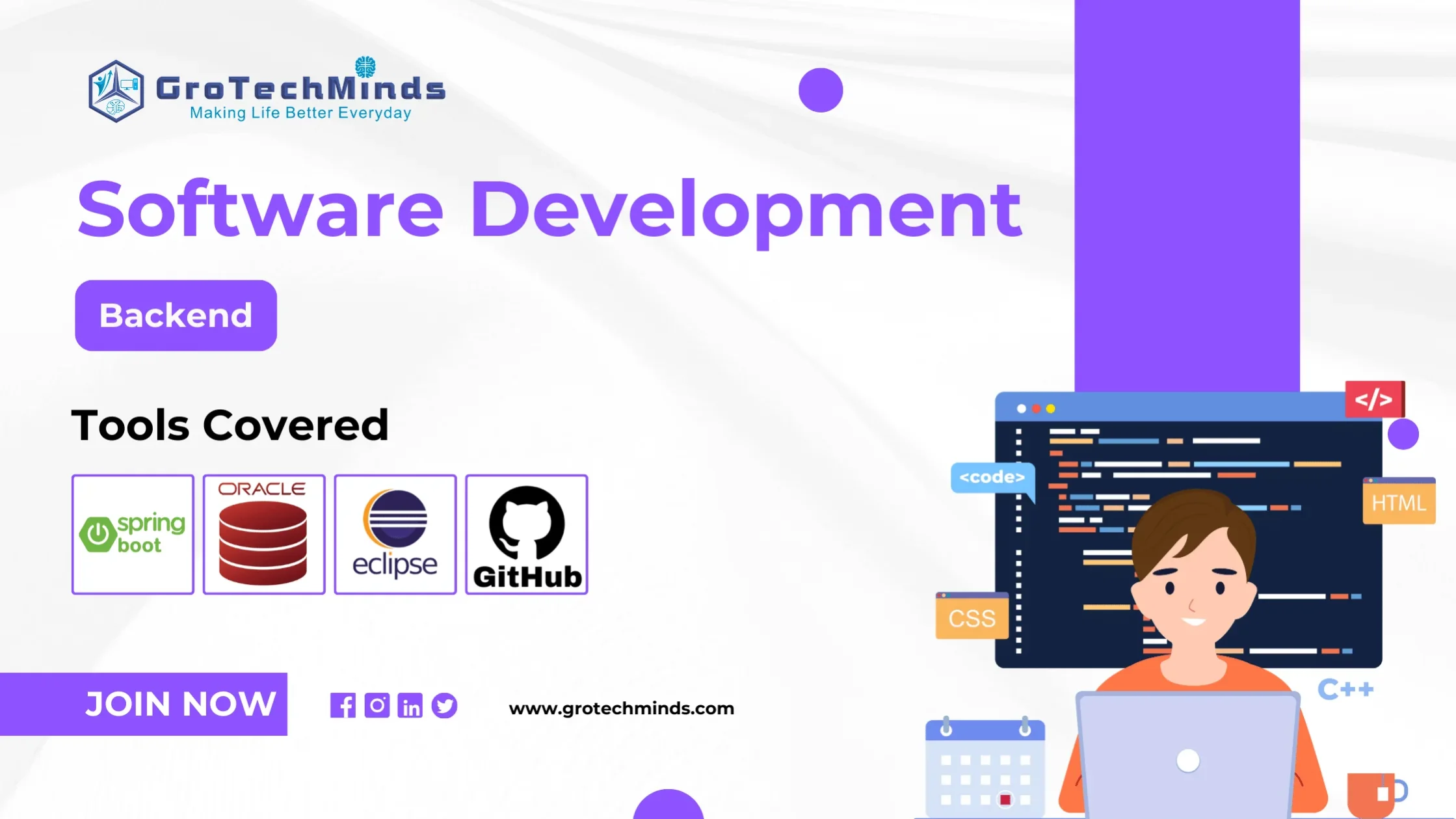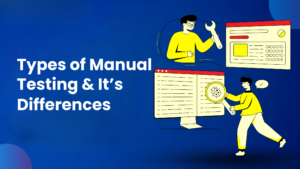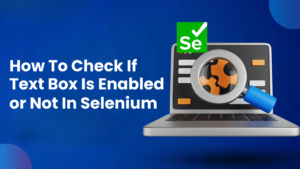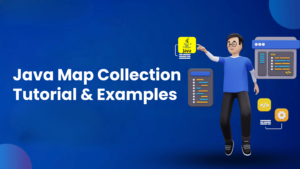
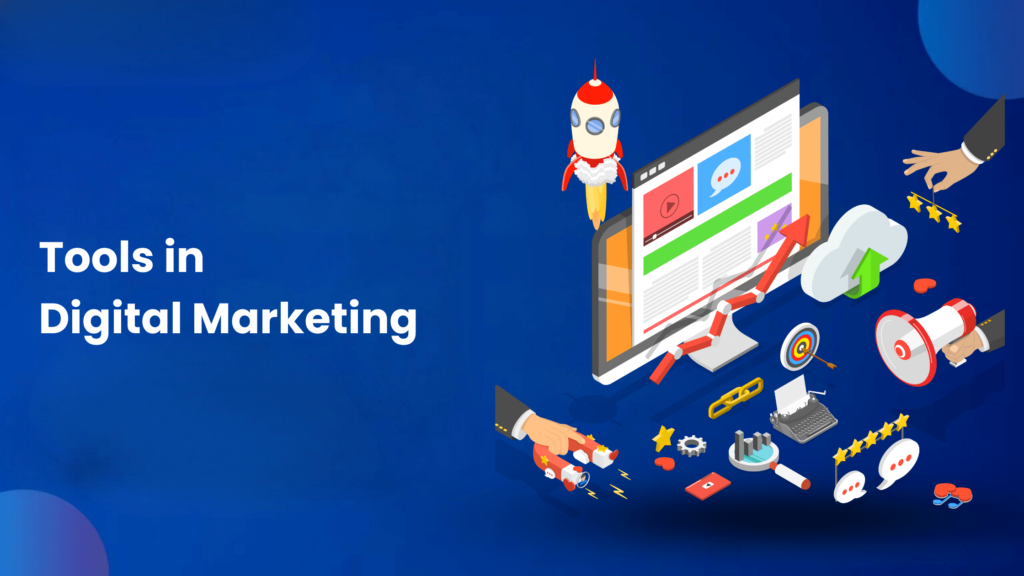
Introduction to Digital Marketing Tools
Digital marketing tools are the foundation of any effective online marketing strategy, giving the resources required to build, manage, and analyse marketing initiatives. These tools provide a variety of capabilities customised to certain marketing demands, such as search engine optimization, content generation, social media administration, and email marketing.
Google Analytics: Provides insights into website traffic and user behaviour.
Ahrefs: A complete tool for keyword research, backlink analysis, and site auditing.
Moz Pro: Provides tools for auditing websites, tracking rankings, analysing backlinks, and conducting keyword research.
Canva: Allows for the creation of visual content such as social media postings, talks, and marketing collateral.
BuzzSumo: Identifies popular topics and important material to guide content strategy.
Grammarly: Improves the quality of written content through reviewing grammar and providing style suggestions.
Hootsuite: Manages multiple social media accounts from a single dashboard, posting in advance and tracking social media performance.
Buffer: Schedules postings, monitors content performance, and maintains interaction levels.
Sprout Social: Social media scheduling, monitoring, and reporting are all integrated into one platform.
Mailchimp: Provides tools for designing emails, managing subscriber lists, and analysing email campaign performance.
HubSpot: Offers a full array of email marketing solutions, including automation, A/B testing, and analytics.
Constant Contact: Focuses on email campaign creation, list management, and reporting.
Efficiency: Streamline multiple marketing tasks so that marketers can focus on strategy and creative execution.
Analytics and Reporting: Provide extensive insights into campaign performance, allowing for data-driven decisions.
Scalability: Quickly handle large-scale marketing operations.
Integration: Many solutions integrate with other marketing and business applications, resulting in a seamless marketing environment.
Digital marketing tools play an indispensable role in enabling businesses to reach their marketing objectives effectively and efficiently.
In digital marketing, SEO tools are critical for improving a website’s search engine rating. They provide data and insights that are useful in optimising online presence. Here are some of the best SEO tools:
Benefits: Offers in-depth research of website traffic, user behaviour, and conversion rates.
Features: Real-time data tracking, unique reporting, and segmentation provide extensive insights.
Benefits: Offers detailed information on website’s SEO performance and indexing status.
Features: Keyword performance reports, crawl error tracking, and link information.
Benefits: Known for its thorough backlink analysis skills.
Features: Site Explorer, Keyword Explorer, Ranking Tracker, and Content Explorer.
Benefits: Combines SEO, PPC, keyword research, and competitive analysis into a single platform.
Features: Organic research, advertising research, display advertising, and traffic analysis.
Benefits: Known for its powerful keyword research tools and SEO tracking features.
Features: Auditing websites, watching rankings, analysing backlinks, and conducting keyword research.
Benefits: Provides deep website audit reports to help find technical SEO concerns.
Features: On-page SEO audit, broken link checker, and XML sitemap generator
Benefits: Optimal for on-page SEO, particularly for WordPress websites.
Features: Meta tag optimization, readability assessment, and content insights.
Benefits: A free tool for keyword research and site audits.
Features: Domain overview, keyword suggestions, and content concepts.
Benefits: Expert in finding long-tail keywords with low competition.
Features: SERP analysis, keyword difficulty, and local keyword research.
Benefits: Complete backlink analysis and site exploring tools.
Features: Site Explorer, backlink analysis, and trust flow measures.
important marketing systems have been useful for developing, distributing, and measuring material that increases brand exposure, engagement, and conversions. Here’s a look at some key content marketing platforms:
HubSpot offers a full range of content marketing solutions, including blogging, SEO, social media, and email marketing services. Its technology connects with CRM, allowing marketers to monitor customer interactions and tailor content delivery.
Contentful is a content management system which allows teams to manage and deliver content across many channels and formats. It delivers flexibility and scalability, which are critical for firms that need to retain a consistent brand voice around the globe.
Contently specialises in high-quality storytelling by linking brands with independent creatives. It provides tools for planning, managing, and assessing content performance. The platform’s statistics provide strong insights into ROI, engagement, and reach.
CoSchedule specialises in marketing calendars and project management, offering a unified platform for planning, organising, and implementing content initiatives. Its headline analyzer and social campaign tools help improve content effectiveness.
Percolate is a complete marketing coordination tool that helps teams produce, distribute, and optimise content. It offers workflow management, content calendars, and asset management to increase productivity and collaboration.
Skyword is intended for storytelling across all digital media, bringing together brands with a network of experienced writers and creative talent. The platform allows content development, optimization, and distribution, as well as performance monitoring through deep analytics.
SEMrush integrates SEO, content marketing, and competitive research to provide a set of tools for keyword research, site audits, and content analytics. This software helps create content strategies that resonate with target audiences and increase search rankings.
Trello is a powerful project management application that helps with content marketing with customised boards, lists, and cards. Teams can manage content calendars, workflows, and collaboration more effectively, increasing transparency and efficiency.
WordPress powers almost one-third of all websites worldwide. It provides a wide range of plugins and themes to help with content generation, SEO, and user experience. Its adaptability makes it a preferred platform for many content marketers.
Using these platforms can help speed up content marketing processes, boost team communication, and ultimately produce more effective and appealing content that resonates with the audience.
Email marketing is an important instrument in digital marketing. Multiple platforms provide advanced solutions targeted to businesses of various sizes. These tools expedite campaigns and ensure efficient communication with target consumers.
- Automation: Allows you to schedule emails and triggers based on user behaviour.
- Segmentation: Divides an audience based on many parameters.
- Analytics: Essential for monitoring open rates, click-through rates, and conversions.
- Personalization: Customises emails for individual recipients, increasing engagement.
- Templates: Pre-designed templates are available to help you save time while creating emails.
- A/B Testing: Allows you to experiment with different email versions to measure their efficacy.
Mailchimp is a useful tool known for its reliability and extensive feature set. It allows automation, segmentation, and personalization.
Constant Contact provides user-friendly tools suited for small enterprises. It excels in social media integration and measuring email success metrics.
SendinBlue offers marketing automation and SMS marketing solutions. Its customisable themes help you easily create professional-looking emails.
- Cost-Effectiveness: Email marketing is far less expensive than other types of digital marketing.
- Direct Communication:Offers a direct line of connection with the audience, to guarantee messages are received.
- Retention: Keeps existing clients interested and informed of new offers or upgrades.
- Scalability:Suitable for businesses of all kinds, from tiny to huge groups.
Many email marketing tools integrate seamlessly with other marketing platforms:
- CRM Systems:Coordinates contact and client information.
- E-commerce Platforms: Allows personalised product recommendations.
- Social Media: Improves cross-channel campaigns.
Email marketing solutions often come with features ensuring compliance with regulations such as GDPR.
- Data Protection: Uses protection and safe storage.
- Opt-in Management: Makes sure that consent is secured before sending emails.
- Unsubscribe Options: Provides simple opt-out tools for dealing with legal regulations.
Using these tools effectively can significantly enhance a company’s online presence, driving both engagement and conversions.
Social media management tools are essential for improving a brand’s online contact. These tools allow businesses to effectively plan, analyse, and interact with content across different platforms. Here are several significant social media management tools, along with a quick summary of their capabilities:
Hootsuite is an industry leader known for its powerful scheduling capabilities and robust analytics.
- Scheduling: Allows you to schedule posts across many social media sites from a single interface.
- Analytics: Provides a thorough performance analysis to determine the effectiveness of social media efforts.
Monitoring: Provides social listening solutions to monitor brand mentions and audience reaction.
Buffer promotes simplicity and use, making it outstanding for small and medium organisations.
- Queue Management: Efficiently controls queues to guarantee that material is posted at optimal times.
- Collaboration:Allows for team communication through approval workflows.
- Reporting: Provides basic analytics to assist measure engagement and reach.
Sprout Social specialises at client relationship management and social media metric tracking.
- CRM Integration: IntCRM integration allows you to manage interactions with followers and leads.
- Content Calendar:A visual content calendar facilitates planning and scheduling.
- Insights: Detailed analytics reports on engagement, demographics, and trends.
Later specialises in visual scheduling, making it a favourite for brands focusing on Instagram.
- Visual Planner: A drag-and-drop calendar for graphically arranging Instagram posts.
- Media Management: Organises and schedules photographs and videos effortlessly.
- User-Generated Content: Helps to organise and schedule user-generated content to increase engagement.
SocialBee focuses on content categorization and recycling, ensuring consistent engagement.
- Categorization: Categorizes posts to ensure a diverse range of content kinds.
- Recycling: Automatically recycles evergreen material to guarantee ongoing engagement.
- Audience Targeting: Customises posts for various target segments to increase interaction.
Agorapulse combines a variety of features for comprehensive social media management.
- Inbox Management: Social inbox to manage comments, mentions, and private messages efficiently.
- Team Collaboration: Task and approval functionalities make teamwork easier.
- Reporting: Advanced reporting features provide extensive analysis of performance parameters.
CoSchedule provides an all-in-one marketing calendar that integrates with other key tools.
- Marketing Calendar: Synchronises social media, blog posts, and marketing campaigns into one calendar.
- Social Campaigns: Allows the creation of comprehensive social media campaigns, not just single posts.
Automation: Automates repetitive tasks to streamline the posting process.
Sendible is designed for agencies managing multiple clients and brands.
- Client Management: Features designed for managing multiple client social media profiles.
- Integration: Integrates with various tools like Canva, Google Analytics, and others.
- White Labelling: Offers white-label solutions that allow agencies to brand the platform.
Social media management tools are crucial for having an active and engaging online presence. These technologies allow organisations to streamline their social media activity, save time, and increase engagement levels.
Pay-Per-Click (PPC) and advertising solutions are essential for generating targeted traffic to online platforms, improving visibility, and maximising ROI. The following are some of the top PPC and advertising solutions recommended for digital marketers.
Google Ads is a prominent advertising platform, allowing businesses to display ads on Google’s search engine and other properties. Key features include:
- Keyword Planner: Helps identify relevant keywords for ad campaigns.
- Ad Extensions: Add additional information to your adverts, such as location, links, and special deals.
- Conversion Tracking: Tracking user actions helps assess the success of ad campaigns.
Facebook Ads Manager is a full package for running and managing ads on Facebook and Instagram. Features include:
- Audience Insights: Understands and targets specific demographics and interests.
- Ad Formats: Supports various formats such as image, video, carousel, and slideshow ads.
- A/B Testing: Allows for split testing of various ad creatives to optimize performance.
Microsoft Advertising offers an alternative to Google Ads by allowing advertisements to show on Bing and Yahoo. Features include:
- Keyword Research Tool: Identifies keywords with lower competition.
- Ad Scheduling: Controls when and where adverts show for maximum effectiveness.
- Audience Targeting: Considers demographics such as age, gender, location, and device type.
LinkedIn Ads is ideal for B2B marketing, as it targets professionals based on job titles, industries, and talents. It offers.
- Sponsored Content: Promotes content in LinkedIn’s feed.
- InMail: Sends personalised messages directly to LinkedIn user inboxes.
- Text Ads: Displays brief adverts in the LinkedIn sidebar.
AdRoll provides a robust solution for retargeting and prospecting through display and social ads. Key features include:
- Dynamic Ads: Personalised ad content based on user behaviour.
- Cross-Platform Campaigns: Runs cohesive ad campaigns across multiple platforms.
- Analytics Dashboard: Provides in-depth performance insights.
By integrating these PPC and advertising tools, businesses can reach a broader audience, fine-tune ad strategies, and ultimately drive higher conversions.
In the digital marketing world, data-driven decisions are important for optimising strategies and improving campaign performance. Advanced analytics and data reporting tools can help firms make informed decisions.
- Google Analytics Google Analytics is one of the most complete tools available, with significant tracking features. It allows marketers to,
- Track and measure website traffic and user behaviour.
- Identify the most effective marketing channels.
- Gain insights into audience demographics and interests.
- Monitor goals and e-commerce conversion rates.
- SEMrush SEMrush is a complete marketing solution that includes metrics for SEO, PPC, content, social media, and competitor analysis.
Key features include:
- Keyword research and suggestion tool.
- Competitor analysis to identify strengths and weaknesses.
- Tracking of backlinks and domain analytics.
- Customizable reports with branding options.
- HubSpot Analytics HubSpot has a strong collection of analytics features built into its marketing platform. It aids in
- Monitoring performance across multiple channels in one dashboard.
- Segmenting audiences and following user journeys.
- Measuring the ROI of marketing campaigns.
- Creating detailed reports for marketing, sales, and service teams.
- Adobe Analytics Adobe Analytics offers detailed insights into customer data and behaviours. It offers:
- Real-time analytics and customer journey visualisation.
- Predictive analysis using machine learning.
- Customizable dashboards and reports.
- Integration with other Adobe products such as Adobe Experience Cloud.
- Crazy Egg Crazy Egg focuses on visual analytics and website optimization. It provides:
- Heatmaps to see where users click and scroll.
- A/B testing to optimise web page elements.
- Visitor recordings to understand user interactions.
- Snapshots for tracking changes over time.
- Kissmetrics monitors user behaviour across many devices and segmented audiences. Key aspects include:
- Funnel and pathway analysis to identify drop-off points.
- Cohort analysis to measure engagement over time.
- Behavioural tracking to personalise marketing activities.
- Detailed reporting with actionable insights.
Using these data analysis and reporting tools, firms can improve their digital marketing operations. The obtained data can be used to optimize content, advertising spending, and user experience, thus establishing an online presence.
Customer Relationship Management (CRM) systems are essential tools in digital marketing that enable businesses to manage interactions with current and potential customers. These systems are designed to streamline processes, enhance customer relationships, increase sales, and improve customer service. CRM systems collect and store customer information in a centralised database, providing a comprehensive view of each customer and their interactions with the business.
Key functionalities of CRM systems include:
- Contact Management: CRM systems offer the capability to store and manage customer contact information, such as names, phone numbers, and emails. This feature ensures that all customer data is easily accessible and organised.
- Sales Management: CRM systems allow firms to track and manage sales pipelines, from lead generation to close. This tool allows sales teams to assess their performance and forecast sales trends.
- Marketing Automation: CRM systems usually incorporate marketing automation features that facilitate the execution of marketing campaigns. These technologies can manage email marketing, social media campaigns, and other marketing initiatives, providing constant and customised engagement with customers.
- Customer Service: CRM systems include features for tracking customer service interactions and support requests. This feature allows organisations to provide quick and effective customer service, increasing overall customer satisfaction.
- Analytics and Reporting: CRM solutions provide powerful analytics and reporting capabilities. These technologies allow firms to analyze customer data, assess the performance of marketing initiatives, and make data-driven decisions.
Popular CRM systems used in digital marketing include:
- Salesforce: A top CRM platform known for its full features and flexibility.
- HubSpot: An all-in-one CRM platform that includes marketing, sales, and service functions.
- Zoho: A complete CRM system with multiple integration and customization options.
- Microsoft Dynamics 365: A solid CRM system that works seamlessly with other Microsoft products.
To summarise, CRM systems play an important role in digital marketing by organising customer data, automating marketing processes, and improving customer interactions. Businesses that use CRM systems might gain a competitive advantage by providing personalised experiences and encouraging long-term client loyalty.
Conversion Rate Optimization (CRO) tools are essential in digital marketing for improving the percentage of visitors who complete desired actions on a website. These tools offer invaluable insights into user behaviour and help refine website elements to increase conversions.
Google Optimise
Google Optimise, a free tool that connects with Google Analytics, allows marketers to execute A/B, multivariate, and redirect testing.It also provides real-time data and analytics, letting marketers learn which variations provide the best results.
Hotjar
Hotjar provides heatmaps, session records, and feedback tools for understanding user interactions on a website.Its intuitive dashboard helps identify pain points in the user journey, facilitating data-driven decisions to improve conversion rates.
Optimizely
As a leading experimentation platform, Optimizely provides A/B testing and multivariate testing capabilities.The tool also offers personalization features, helping tailor content to user segments based on their behaviour and preferences.
Crazy Egg
Crazy Egg provides heatmaps, scroll maps, and user recordings to visualise user interactions.With its A/B testing features and easy segmentation, Crazy Egg helps marketers identify elements to optimise for better performance.
Unbounce
- Specialising in landing page optimization, Unbounce offers tools for A/B testing, dynamic text replacement, and mobile-responsive design.
- With its drag-and-drop builder, marketers can quickly create and test high-converting landing pages.
VWO (Visual Website Optimizer)
- VWO offers a comprehensive solution with A/B testing, multivariate testing, heatmaps, user recordings, and form analytics.
- Its AI-powered insights aid in refining user experiences and boosting conversion rates.
Convert
- Convert provides robust A/B testing and multivariate testing options.
- The platform ensures GDPR compliance and supports advanced segmentation for more nuanced testing strategies.
AB Tasty
- An all-in-one CRO platform that offers A/B testing, personalization, and user engagement tools.
- AB Tasty’s visual editor makes it easy to create, launch, and measure experiments without coding.
Lucky Orange
- Lucky Orange combines heatmaps, session recordings, and dynamic heatmaps to offer a 360-degree view of user interactions.
- The tool also provides live chat support and conversion funnels to capture user feedback and optimise site elements.
Instapage
- Focused on post-click optimization, Instapage offers A/B testing, heatmaps, and personalization tools.
- Its collaborative platform helps teams work together to create high-converting landing pages efficiently.
These tools collectively provide digital marketers with the necessary data and functionalities to enhance user experience, driving better conversion rates and higher ROI.
In today’s digital landscape, influencer marketing platforms are important for organizations trying to capitalise on influencers’ reach and trustworthiness. These systems streamline the process of identifying, engaging, and managing influencer relationships, resulting in more effective and efficient marketing efforts.
Influencer.co
- Connects with influencers across many social media channels.
- Provides data to track campaign performance and ROI.
- Includes influencer profiles, engagement data, and audience demographics.
Traackr
- Allows marketers to identify influencers, manage relationships, and track performance.
- The influencer search engine includes complete standards for accuracy targeting.
- Provides useful information and thorough reporting on campaign outcomes.
Upfluence
- Combines influencer search and outreach into a single platform.
- Users can analyse influencer performance and campaign impact.
- Includes tools for creating content and managing campaigns.
AspireIQ
- Offers a collaborative environment for developing and managing influencer campaigns.
- Includes capabilities for finding influencers, managing relationships, and approving content.
- Uses machine learning to link brands with appropriate influencers.
HYPR
- Uses machine learning to connect brands with relevant influencers.
- provides a database of influencers with specific audience demographics.
- Integrates with various marketing platforms to ensure smooth campaign execution.
Audience Analytics: Understanding the demographics and engagement metrics of an influencer’s audience is critical. Platforms that give detailed analytics provide vital data for targeting the proper audience.
Campaign Management: Look for tools that automate campaign workflows from start to finish, including reporting. Features such as content approval, scheduling, and performance tracking are necessary.
Search Filters: Advanced search features allow marketers to identify influencers that match their target demographic, industry, and campaign objectives. Filters like location, interaction rate, and follower count are very helpful.
ROI Tracking: Effective platforms provide methods for measuring the success of influencer marketing. Engagement, conversion rates, and return on investment are all metrics that assist analysing total impact.
Influencer marketing platforms play a pivotal role in modern marketing strategies. By facilitating the discovery and management of influencers, these tools help brands maximise the effectiveness of their campaigns.
Visual material is extremely important in digital marketing. Tools for creating visual content can increase engagement, brand identification, and conversions. Here are some of the best tools for creating great visual content.
Canva
Canva makes designing simpler for people with no graphic design knowledge. Provides an extensive library of templates, pictures, icons, and fonts. The drag-and-drop capability makes it easy to use. Perfect for making social media graphics, presentations, posters, and more.
Adobe Spark
A flexible device inside the Adobe Creative Cloud suite. Offers advanced capabilities for creating graphics, web pages, and movies. Templates and themes help users keep their brand consistent. Integration with Adobe Stock provides access to high-quality photos.
Piktochart
Specializes on infographics, making data visualisation simple. The drag-and-drop interface allows smooth customisation. Ideal for reports, presentations, and educational materials. Offers a large template library and chart-building tools.
Crello
Designed for social media marketers and small business owners. Provides thousands of templates for articles, stories, advertisements, and other content. Animation and video making are among the available features. The user-friendly interface allows speedy design procedures.
Visme
Mixes design with data visualisation. Ideal for developing presentations, infographics, reports, and social media graphics. Offers an array of customisable templates and visual materials. Collaboration capabilities facilitate teamwork on visual projects.
Stencil
Designed for marketers and bloggers who require speedy development. Concentrates on simplicity without sacrificing quality. Offers millions of stock pictures and hundreds of designs. The browser plugin allows the direct usage of photos in web content.
Animoto
Specializes in video making. Ideal for advertisers who require video material rapidly. Features a drag-and-drop video editor, professional templates, and a soundtrack library. Ideal for making marketing films, social media material, and advertisements.
Snappa
A design tool geared toward non-designers. The features include pre-made templates, graphics, and fonts. Assists in the creation of social media posts, advertisements, banners, and other content. Focuses on speed and ease of use to provide a speedy turnaround.
Easil
Known for its many customising options. Provides templates for a variety of social media platforms. Advanced capabilities for brand management and cooperation. Provides drag-and-drop capabilities and a variety of visual components.
Design Wizard
A tool aimed at speed and simplicity. Provides a variety of templates and design features. Allows for customization to match the style of the company. Ideal for producing marketing materials fast and efficiently.With these tools, marketers can create professional-quality images that boost their online visibility and engagement.
Video marketing has become an essential part of digital marketing strategy, providing creative and engaging ways to attract and convert customers. The correct tools may significantly enhance the quality, efficiency, and reach of video material.
1. Adobe Premiere Pro
Adobe Premiere Pro is an industry-standard video editing software that provides a comprehensive suite of tools for producing high-quality videos. It supports multiple video formats and provides advanced editing features like multi-camera editing, colour correction, and seamless integration with other Adobe Creative Cloud apps.
2. Final Cut Pro
Adobe Premiere Pro is an industry-standard video editing software that provides a comprehensive suite of tools for producing high-quality videos. It supports multiple video formats and provides advanced editing features like multi-camera editing, colour correction, and seamless integration with other Adobe Creative Cloud apps.
- Camtasia
Camtasia is a powerful program for generating instructional videos and presentations. It allows users to record their screen and camera and edit videos with a simple drag-and-drop interface. It includes comments, transitions, and audio effects, making it ideal for educational content and product demonstrations.
- Animoto
Animoto is an easy-to-use internet video creator which allows businesses to quickly generate professional-quality videos. It provides customized layouts, an extensive media collection, and simple social media integration. It’s especially excellent for promotional videos, social media posts, and testimonials.
- Wistia
Wistia offers a tailored experience for video marketing with advanced features like video SEO, detailed analytics, and customizable video players. It is designed to help businesses track viewer engagement and optimise their video content for better performance and conversions.
- Vidyard
Vidyard offers video hosting, analytics, and customised video marketing. It includes powerful capabilities like video email integration, broad analytics, and interactive video elements. Vidyard is a valuable tool for both B2B and B2C marketers who want to increase consumer engagement through personalised content.
- Loom
Loom is a popular tool for quickly and easily producing short videos. It allows users to record their screen and webcam together and share the movies quickly. This application is ideal for delivering brief updates, training, and personalized communications.
- Vimeo
Vimeo hosts high-quality videos and offers extensive video production and editing tools. Its merits include sophisticated video presentations and simplicity of collaboration. Vimeo also provides significant privacy choices and detailed analytics, making it ideal for businesses who want to control their brand and analyse their performance.
Video marketing tools play an important role in improving content quality, engagement, and reach. Each tool stated has its own set of features that address different parts of video production and delivery, giving marketers a variety of options for achieving their objectives.
Webinars and live streaming have transformed digital marketing, allowing real-time interaction and content sharing. The technologies listed below are vital for improving these experiences and allowing businesses to effectively engage audiences.
Zoom
Industry Leader in Webinars Zoom is renowned for its robust features:
- HD Video and Audio: Ensures high-quality streams.
- Screen Sharing: Facilitates presentations and demonstrations.
- Interactive Tools: Polls, Q&A, and chat functions enhance engagement.
- Recording: Sessions can be recorded for future use and review.
Microsoft Teams
Integrated with Office 365 Microsoft Teams offers:
- Seamless Integration: Works well with other Microsoft Office tools.
- Large Participant Capacity: Supports large-scale webinars.
- Collaboration Tools: Includes file sharing and collaborative editing.
- Security Features: Advanced security and compliance protocols.
GoToWebinar
Tailored for Professional Webinars Key features of GoToWebinar:
- Custom Branding: Customizable webinar templates for brand consistency.
- Automated Emails: Reminders and follow-ups to keep attendees informed.
- Analytics: Detailed reports on attendee engagement.
StreamYard
Browser-Based Streaming StreamYard is favoured for its ease of use:
- No Software Download Required: Operates directly from web browsers.
- Multi-Streaming: Stream simultaneously to multiple platforms (Facebook, YouTube, LinkedIn).
- Guest Integration: Allows up to six guests to join the stream.
Facebook Live
Engages Global Audience Facebook Live enhances real-time interaction:
- Wide Reach: Leverages Facebook’s vast user base.
- User Engagement: Real-time comments and reactions.
- Monetization Options: Includes features for in-stream ads and viewer donations.
OBS Studio
Open-Source Broadcasting Software OBS Studio is preferred for its flexibility:
- Customizable Interface: Tailorable scenes and sources.
- High-Performance Real-Time Video/Audio: Optimised for professional live streaming.
- Free to Use: Cost-effective for businesses with limited budgets.
WebinarJam
Feature-Rich Webinar Platform WebinarJam offers:
- High-Quality Streaming: Reliable video and audio.
- Automated Webinar Replays: Allows on-demand viewing.
- Marketing Integrations: Compatible with popular CRM and email marketing tools.
Using these solutions guarantees that webinars and live streaming content are delivered efficiently, resulting in increased audience engagement and an improved overall digital marketing strategy.
Using these solutions guarantees that webinars and live streaming content are delivered efficiently, resulting in increased audience engagement and an improved overall digital marketing strategy.
Benefits of AI and Automation in Digital Marketing
- Personalization: AI tools analyse customer data to create personalised content and recommendations. This drives higher engagement and conversion rates by delivering relevant content to each user.
- Efficiency: Automation tools reduce manual tasks such as email marketing, social media posting, and ad management. This allows marketers to focus on strategic activities rather than repetitive tasks.
- Data-Driven Insights: AI-powered analytics tools provide insights into consumer behaviour, campaign performance, and market trends. This data helps marketers make informed decisions and optimise their strategies.
- Improved Customer Service: AI chatbots and virtual assistants offer instant responses to customer queries, enhancing user experience and reducing the need for human intervention.
- HubSpot: A complete marketing automation platform with capabilities for email marketing, social media management, and lead generating. HubSpot employs artificial intelligence (AI) to personalise content and improve campaign performance.
- Google Ads: Google’s AI-driven advertising platform helps marketers create effective ad campaigns by analysing user behaviour and adjusting bids in real-time to maximise ROI.
- Salesforce Marketing Cloud: A broad range of marketing tools that use AI to automate email marketing, social media advertising, and customer path mapping.
- Drift: An interactive marketing platform that employs AI-powered chatbots to engage website visitors, qualify leads, and set up meetings with sales teams.
- Marketo: A marketing automation program that uses artificial intelligence to personalise user experiences, score leads, and manage multi-channel campaigns.
- Voice Search Optimization: AI tools help optimise content for voice search, enabling brands to reach users who rely on smart speakers and voice assistants.
- Predictive Analytics: Leveraging AI to predict future trends and customer behaviours helps marketers stay ahead of the curve and tailor their strategies accordingly.
- Programmatic Advertising: Automation in ad buying and placement ensures ads reach the right audience at the optimal time, thereby increasing the efficiency and effectiveness of ad spend.
- Content Generation: AI-powered tools can generate high-quality content, such as blog posts and social media updates, based on data-driven insights and user preferences.
Incorporating these AI and automation tools into a digital marketing strategy can significantly enhance a brand’s online presence and drive measurable results.
Also read : Career in Digital Marketing
Digital marketing tools are necessary for guaranteeing a brand’s strong online presence. Businesses who use these technologies properly can improve their marketing efforts and obtain better outcomes.
The right mix of tools offers comprehensive benefits:
- SEO Optimization: Tools like SEMrush and Ahrefs assist in keyword research, backlink analysis, and site audits, ensuring higher visibility and ranking in search engines.
- Content Creation and Management: Platforms like WordPress, HubSpot, and Canva enable seamless content creation, curation, and management, aligning with your content strategy.
- Social Media Management: Hootsuite and Buffer streamline the management of multiple social media accounts, scheduling posts, and analysing engagement metrics.
- Email Marketing: Mailchimp and Constant Contact allow for targeted email campaigns, automation, and performance tracking, enhancing customer engagement.
- Analytics and Reporting: Google Analytics and social media insights provide valuable data on user behaviour, conversion rates, and campaign effectiveness.
- Advertising and PPC: Google Ads and Facebook Ads Manager help in crafting targeted ad campaigns with measurable ROI.
- Customer Relationship Management (CRM): Salesforce and Zoho CRM facilitate customer data management, personalised communication, and sales automation.
A complete strategy that uses a variety of digital marketing technologies helps firms reach their target audience more efficiently, improve brand credibility, and drive considerable growth. Professionals in the digital marketing field are always adapting to new tools and technology, ensuring that their tactics remain current and effective.
Consult Us

